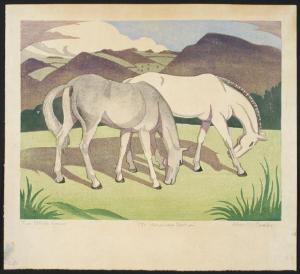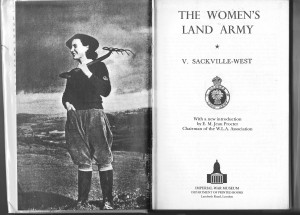36 days left to go until my dissertation for my masters degree is due!
I have written only one blog about my dissertation so far, which was when I was planning, getting my ideas together and doing a lot of research. As a quick reminder, my dissertation is about British female poetry of the Second World War. I looked at the First World War, so for me, it made sense to move onto the second one, but also because I enjoy studying female war poetry.
I’m at the stage now where I am just over two thirds of the way through in terms of the word count (the overall word count needs to be no more than 15,000 words). Sometimes I feel absolutely fine and believe that I have plenty of time and will finish it; other times I feel panicky and worry that I still have an awful lot of work to do!
Since writing the first blog about my dissertation, I have made a slight change to how I am approaching it. Rather than just focusing on female poets from the Second World War, I am looking into women who were not poets by occupation. War tends to cause people to write poetry, many who would not necessarily read or write it, as a way to come to terms with what is happening, and to express themselves through a creative medium i.e. in ways they cannot express in day-to-day conversation.
One example of a British woman who was not a poet but wrote poetry as a result of war is Alice Coats. Coats was better-known as a horticultural historian and a visual painter. She achieved outstanding recognition for her contribution to garden history, winning the award of the Veitch Memorial Medal by the Royal Horticultural Society on 17th February 1976, and she was conferred for an honorary degree of Master of Arts by the University of Birmingham on 9th July 1976.

Coats discovered her passion for horticulture when she worked in the Women’s Land Army in Warwickshire during the Second World War. After the war she published many books on gardening. However, it was from working in the Women’s Land Army that Coats’ talent for writing poetry was revealed in Vita Sackville-West’s anthology Poems Of The Land Army (1945). Even though Coats was not a poet, her works are very worthy of literary attention, many of them demonstrating what it was like to be a woman in war-time Britain.

The other women I am looking into are Vera Bax, Wrenne Jarman and Sylvia Read. All of the women in this dissertation have received very little or no recognition for their poetry written during and/or about the Second World War. This is partly because they were not poets or that well-known as poets. If they have received some attention, it is mostly only in passing, such as Tim Kendall, the editor of The Oxford Handbook of British and Irish Poetry (2007), who mentions Alice Coats as a talent poet, ‘represented by her wittingly satirical ‘Monstrous Regiment’’ (p.433).
It has been really interesting conducting research into women who have been greatly under-represented in contemporary literary studies. Women are slowly starting to be included more into the study of war poetry, and those that have been recognised were established writers during the twentieth-century, the most well-known one being Frances Cornford. Another well-known name is Edith Sitwell, but for my dissertation, I have purposely avoided those who have already been established into literary studies today. There are so many talented women who have yet to be discovered and added to the canon of war literature.
Even though I do find it difficult at times to write up my dissertation, I am enjoying the experience overall. Research and editing are my favourite parts of the process, the writing not so much! I am still unsure as to whether I would like to pursue a PhD- I will see how this ‘small’ project goes and how life is after finishing at university.
Happy reading and blogging!
Many thanks,
Clare Bear
Blimey 15.000 words! I’m finishing a book that has taken me nearly a year to write and it’s about 30.000 words. Yours could be a book too because it’s such an unusual subject and sure to find readers especially among female poetry enthusiasts with an interest in history and women’s emancipation. My book is like yours and it’s the first non fiction book that I’ve ever written as what I write is usually allegorical fantasy blended with philosophy and psychology. I found the process of writing non fiction difficult and slow but very enriching because I had to make lots of researches to get things right. Good luck and keep going!
LikeLiked by 1 person
I agree with you that it is a slow but enriching process when writing up a project
If I decide to do a PhD then my area of research will be women’s poetry of the twentieth-century, in particular Wrenne Jarman
She has been an interesting case as she was a very prolific poet of her time but there’s little known about her life and her works are not pursued in contemporary literary studies
What is your book about?
LikeLiked by 1 person
My book is titled: “Meditation of a Controversial Cook” It’s a series of easy to read essays that look at humanity through every aspect food, eating, production and distribution including eating disorders, farm animal welfare, GM foods, restaurants and so on. I’ve a good knowledge about the topic and I can express it in many art forms. It will be my first non fiction book. It blends food and cookery with food psychology and philosophy. I’ve finished it now I have to edit it make a cover. Then I will publish it probably in a month or two. Most probably it will be free for three months on amazon in e book format because in that way amazon will promote it and people will download it I may also offer some of the essays to newspapers or magazines Good luck with your PhD.
LikeLiked by 1 person
[…] this morning to start off my day, which will hopefully get my brain into gear to finish off my dissertation! I had two wheat bisks with vanilla yoghurt and fruit salad. My mum loves making fruit salads and […]
LikeLike
[…] to work last week. Jarman is one of the poets I researched and wrote about in my dissertation on British female poetry of the Second World War. One of her poems fascinated me and I want to pay homage to her by writing a response to her poem […]
LikeLike
[…] handing it in on the 14th September, one day before the deadline. I also wrote many blogs on the progress of my dissertation and what it was […]
LikeLike
[…] a Masters in English Studies last year. I posted blogs about my dissertation which was a study of female poetry of the Second World War, and I had to really knuckle down to finish it by mid-September during the summer. I found out in […]
LikeLike
[…] way since day one. I’ve blogged about all sorts of stuff, such as when I was writing about my dissertation for my Masters, reviews of gigs and even nostalgic activities, from making ironing bead patterns to […]
LikeLike
[…] Let’s get dissertational! […]
LikeLike